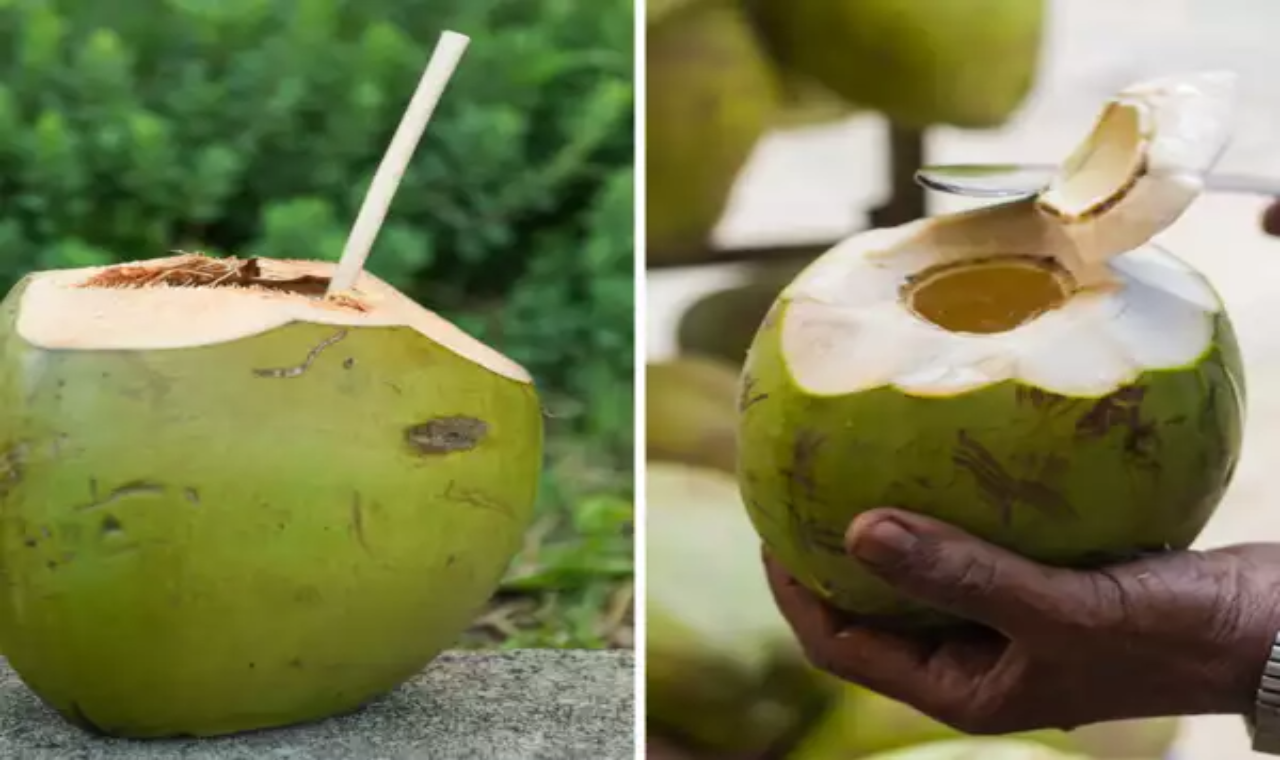Coconut water is often considered a healthy and natural drink. It helps us stay hydrated and is full of minerals like potassium, magnesium, and calcium. Many people drink coconut water to stay fit, beat the heat, or even for better digestion. But recently, a shocking case has come to light – a person died after drinking coconut water. This unfortunate death has left many wondering, “Can coconut water be dangerous?”
Let’s explore how something so healthy turned deadly and what mistake led to this sad incident.
What Happened?
In a recent news report from India, a woman died after drinking coconut water. She had bought a coconut from a roadside vendor. As soon as she sipped the water, she started feeling dizzy and complained of stomach pain. Within a few minutes, her health worsened, and she was rushed to the hospital. Sadly, she could not be saved.
The doctors said she may have consumed spoiled or fermented coconut water, which released harmful toxins into her body. This caused food poisoning or even toxic shock, leading to her death.
How Can Coconut Water Be Dangerous?
Coconut is safe only if it is fresh and clean. But there are some conditions that can make it harmful:
- Spoiled Coconut Water:
When coconut water is kept for a long time or is exposed to heat, bacteria can grow inside. This water smells sour or tastes odd. If consumed, it can cause food poisoning. - Fermented Coconut Water:
Sometimes, old coconuts start fermenting inside due to natural sugars reacting with heat. This fermentation produces alcohol and toxins. Drinking this kind of coconut water can be fatal. - Contaminated Shells:
If the outer part of the coconut is dirty or has mold, it can pass bacteria into the water when opened. - Chemically Treated Coconuts:
In some places, vendors apply chemicals to keep coconuts looking green and fresh. These chemicals are harmful and may mix with the water inside.
Warning Signs of Bad Coconut
Before drinking, check for these signs:
- Smells sour or strange
- Water is cloudy or has a yellow tint
- Tastes bitter or off
- Coconut has cracks, mold, or black spots
If you notice any of these, do not drink the water.
Better Letest Content: Overview Table
| Factor | Safe Coconut Water | Unsafe Coconut Water |
| Smell | Mild, fresh coconut aroma | Sour or unpleasant smell |
| Color | Clear or slightly cloudy | Yellowish or murky |
| Taste | Slightly sweet and natural | Bitter, sour, or strange |
| Coconut Shell Condition | Green, clean, no cracks | Moldy, cracked, or black spots |
| Stored | Freshly cut, room temperature | Long-stored, in hot sunlight |
Safety Tips Before Drinking Coconut
- Buy from trusted vendors: Always choose clean and well-known sellers who store coconuts properly.
- Check before you drink: Smell and taste a little first. If something feels off, stop immediately.
- Avoid coconuts kept in heat: Direct sunlight can spoil the water inside.
- Don’t store open coconuts for long: Once opened, drink it immediately. Do not keep it for hours.
- Clean the outer shell: Before opening, wipe the shell to remove any dust or bacteria.
What Experts Say
Doctors say that such incidents are rare but serious. The key is awareness and caution. Even natural products can be dangerous if they are stale or mishandled.
Food safety experts advise that anything that tastes or smells unusual should never be consumed. Especially during the summer season, chances of food and drinks getting spoiled are higher.
Final Words
Coconut water is still a wonderful drink – but only when it is fresh and clean. One simple mistake, like drinking spoiled water, can lead to a medical emergency or even death.
So, next time you sip coconut water, take a moment to check it carefully. A small caution can save a life. Don’t blindly trust what looks natural. Stay alert, stay safe.

